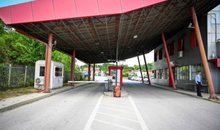
 Flash News
Flash News
Morning Post/ In 2 lines: What mattered yesterday in Albania
4 cars collide in Fier, two people injured
He was carrying a weapon in his apartment! A person was arrested in Maliq
BIRN: Parliament resumes work, removing the floor from the opposition
Checks in Durrës prison, 10 cell phones seized, used by convicts

Shocks that may come from abroad continue to be the main concern for the banking sector.
The results of the periodic survey by the Bank of Albania on the perception of systemic risks in the country by the banking industry show a changed ranking and assessment of these risks during the second half of 2024.
They show an increasing trend of macroeconomic risks, while the assessment of credit, market and financial infrastructure risks has been softening. In the last survey, the banking sector continued to classify “the risk of external shocks” as the main systemic risk, but with a higher assessment.
Despite generally positive global developments regarding inflation and financing conditions in the markets, other factors such as the continuation of geopolitical tensions (especially the conflict in the Gaza Strip and the possibility of its escalation in the region, as well as the continuation of the war in Ukraine), the presidential elections in the US and the uncertainty regarding the positions and policies of the new administration, seem to have kept the concern of banks in the country high over the risk of the transfer of possible negative shocks from abroad, classifying it as the most important systemic risk of the period.
"The risk of cyber attacks" continued to rank second on the list of most important risks during the period, but its rating has softened slightly.
The increase in the digitalization of banking activity in the country has simultaneously increased the risk of cyber attacks, episodes of which have been present in recent years, occasionally damaging the normal continuation of activity.
This has caused banks' focus on this risk to remain high, and a good number of them declare that they have already taken concrete measures to improve their respective protection systems.
Domestic concerns related to the property market
Another systemic risk that seems to be receiving more and more attention recently is “real estate volatility risk,” which has been ranked as the third most important systemic risk.
This risk has gained ground on the list of main risks perceived by the banking sector in the country.
Recent dynamics in the real estate market and the rapid increase in prices seem to have increased banks' concerns regarding their future performance, given that a significant portion of their loan portfolios is exposed to the activity of this market.
This is also reflected in the rapid increase in the assessment of this risk in the second half of last year.
Home loans grew at very high rates last year, and have started 2025 in the same way.
Bank of Albania data show that in the first quarter of the year, the banking sector granted almost 16 billion lek in new loans for housing purchases. The value of new loans increased by almost 23% compared to the same period a year earlier.
At the end of March, the total value of the housing loan portfolio of Albanian households reached almost 218 billion lek, an increase of 15.6% compared to a year earlier. Lending from the banking sector continues to contribute to maintaining high demand in the real estate market.
Meanwhile, the banking sector's total exposure to real estate loans reached 398 billion lek, or more than four billion euros at the end of last year.
According to Bank of Albania statistics, the total value of real estate loans increased by more than 16% during 2024.
This figure includes both customer segments, businesses and individuals. The largest portion of the portfolio belongs to individuals, with approximately 52% of the total exposure in real estate loans, while the remaining 48% is loans granted to businesses.
The Bank of Albania imposed several direct restrictions in May that attempt to curb banks' "rush" into home loans.
Specifically, the Bank of Albania has decided that banks cannot finance more than 85% of the purchase value of a first home and 80% of the purchase value of a second home. In case the loan is in foreign currency, the financing ceiling is reduced to 75% for the first home and 70% for the second home.
The Bank of Albania has also applied a ceiling level for the debt service cost in relation to the borrowers' income (DTI) at the level of 40% for the first home and 35% for the second home, in cases where the loan is granted in Lek. For loans in foreign currency, the ceiling level will be 35% for the first home and 30% for the second home.
Banks skeptical about the economy too
Unlike the previous two surveys, banks' assessment of the "risk of deterioration of the domestic economy" has been increasing during the period, re-incorporating it into the group of main systemic risks. The increased risk of external shocks to domestic economic developments seems to have been reflected in the increased perception of banks regarding the possibility of deterioration of the domestic economy.
In general terms, banks perceive that the possibility of one (or several) of the above-mentioned risks materializing in the short-term (up to one year) and medium-term (1-3 years) future is currently below average and decreasing.
Despite the current challenges, the sector's good capitalization and liquidity situation has meant that banks' confidence in the future stability of the financial system remains above average and growing. /MONITOR/
Latest news


Sunny and partly cloudy, temperatures reaching up to 29 degrees during the day
2025-05-30 07:56:04
Morning Post/ In 2 lines: What mattered yesterday in Albania
2025-05-30 07:45:56
How will we escape the regime? Lubonja: Berisha is no longer to blame
2025-05-29 22:57:17



BIRN: Billions missing in economic growth
2025-05-29 22:14:22

Judge's brother bribed prosecutor, worked with gangs, and returned to work
2025-05-29 21:40:15
From Shijak to Lushnje, Berisha shows the armed gangs that helped the SP
2025-05-29 21:29:19


Berisha: Why did Rama hand over the Port of Durres to the Troplini cartel?
2025-05-29 21:08:01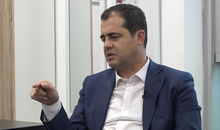
Bylykbashi: This electoral system should have disappeared in 2020, it's not 2008
2025-05-29 20:47:04
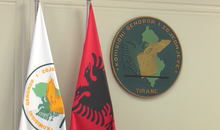
KAS decides to open a box in a VC in Vlora
2025-05-29 20:36:19
Vokshi from the CDI Assembly: Europe must react to the electoral farce of May 11
2025-05-29 20:21:22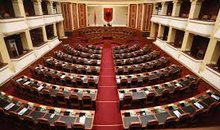


4 cars collide in Fier, two people injured
2025-05-29 19:10:12

Lawyer shocked: A sniper was paid by Albania to eliminate Prime Minister Kurti
2025-05-29 18:53:46



Netanyahu accepts US Gaza ceasefire plan, Hamas 'disappointed'
2025-05-29 17:53:48


He was carrying a weapon in his apartment! A person was arrested in Maliq
2025-05-29 16:59:51
Hamas receives new ceasefire proposal from US
2025-05-29 16:58:27


BIRN: Parliament resumes work, removing the floor from the opposition
2025-05-29 16:08:51
Movement in Tirana Police / Crime, road and urban traffic sectors affected
2025-05-29 16:03:00



Walnut leaves, learn how to use them for health
2025-05-29 15:26:05
Tirana/ 33-year-old man jumps from the third floor of the building
2025-05-29 15:08:38


Rama appeared alongside Brok, Berisha: Elmar's congratulations to him are ironic
2025-05-29 14:47:06
UN: Russia's drone attacks in Kherson, Ukraine, constitute war crimes
2025-05-29 14:37:56
Lek deposits decreasing for the second consecutive month
2025-05-29 14:34:19

Three people involved in drug trafficking are extradited to Italy
2025-05-29 14:08:06


What do we see when we die? The activity of the dying brain provides some clues.
2025-05-29 13:43:08
DP gathers political leaders at blue headquarters
2025-05-29 13:28:52
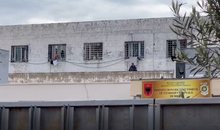
Checks in Durrës prison, 10 cell phones seized, used by convicts
2025-05-29 13:12:14
Banks worried about property prices
2025-05-29 12:58:06
Marriage on paper, Albanian and American woman accused by the US of fraud
2025-05-29 12:47:14

Socialist MP: I would gladly go to jail if a vote was bought
2025-05-29 12:30:58


DP demands 60 minutes of debate in plenary session: Change the agenda
2025-05-29 12:07:53


New Parliament/ 82 MPs who will be absent from September
2025-05-29 11:26:35

DP demands repeat elections in Tirana district
2025-05-29 11:09:48



Investigations for Meta, lawyer: SPAK with political agenda
2025-05-29 10:30:41
Sentenced to 1 year in prison, Ervin Salianji requests parole
2025-05-29 10:24:35
SPAK strikes long-standing cigarette smuggling network with Customs' blessing
2025-05-29 10:08:47
Elon Musk leaves the Trump administration
2025-05-29 09:54:09
Accident in Kurbin/ Pedestrian dies after being hit by vehicle
2025-05-29 09:46:26

World Bank Report: 20% of Albanian population in poverty by 2025
2025-05-29 09:31:38
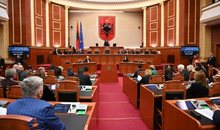


11 things people with high IQs do that they pretend to like, but actually hate
2025-05-29 08:47:46
TNT explosion inside the Fushe Kruja prison compound
2025-05-29 08:47:39
Horoscope, what do the stars have in store for you today?
2025-05-29 08:27:39
Fire in the bus park in Lushnja, four of them burned down
2025-05-29 08:12:48
Weather forecast, how temperatures will change during the day
2025-05-29 08:02:11
Morning Post/ In 2 lines: What mattered yesterday in Albania
2025-05-29 07:48:20

DP official: International reaction to the elections expected within two days
2025-05-28 22:43:54


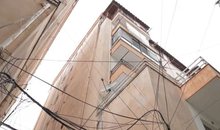



Marco Rubio warns of massive visa freezes for foreign officials
2025-05-28 21:12:04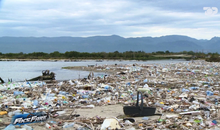

DP demands the repetition of the elections in the region of Fier
2025-05-28 20:52:44


Government, 5 million euros to build a luxury dog hotel
2025-05-28 20:01:58